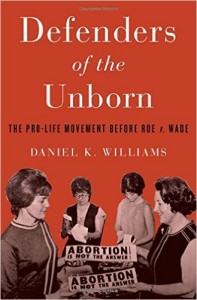
The odd thing about the Oxbridge ethicists is that they later admitted they made their arguments in favor for infanticide as a playful continuation of an academic game, rather than as something meant to have real weight and costs:
We started from the definition of person introduced by Michael Tooley in 1975 and we tried to draw the logical conclusions deriving from this premise. It was meant to be a pure exercise of logic: if X, then Y. We expected that other bioethicists would challenge either the premise or the logical pattern we followed, because this is what happens in academic debates. And we believed we were going to read interesting responses to the argument, as we already read a few on this topic in religious websites.
However, we never meant to suggest that after-birth abortion should become legal. This was not made clear enough in the paper. Laws are not just about rational ethical arguments, because there are many practical, emotional, social aspects that are relevant in policy making (such as respecting the plurality of ethical views, people’s emotional reactions etc). But we are not policy makers, we are philosophers, and we deal with concepts, not with legal policy.
Philosophy does not make things happen for them (but philosophers such as Peter Singer, Michael Tooley, and the writers included in the anthology Infanticide and the Value of Life). Just think of how different this is from the conception of philosophy as a way of life. The earlier and more authentic conception of a costly transformation helped to shape early Christianity in such a way that its ascetic practices, such as the ones especially encouraged during Lent, were absorbed so thoroughly that we suppose they were providentially there from the beginning.
In turn, without their development in the theological tradition there would be no human rights tradition and no source for opposing entities like ISIS, but more importantly, barbaric practices such as abortion, which kill as many millions yearly in just the United States alone, far more than the endless wars we’ve been fighting for over 20 years. France just went into what might become permanent martial law in order to protect its citizens against ISIS, but its abortion laws remain on the books as if they were sacred. Doesn’t support for the latter mock the purposes of the former?
Lent teaches us that the real enemy is, against our desires to escape culpability by scapegoating, within rather than without. If I may pervert Augustine, who first conceptualized Original Sin anyway, the mystery of iniquity is closer to us than ourselves.
I’m surprised I ended up with a weird Lent reflection from where I started. I suspect this is further proof all of these life-issues–economics, healthcare, the environment, and terrorism–are, like every cell in our body, somehow connected. These claims for philosophers extend out chronologically forward and backward. If we accept their thin account of personhood, then there is no reason why someone shouldn’t advocate for the legal killing, making Just War, on the vast majority of NFL fans whose loss would make no appreciable difference in value accrued to society as a whole. They are only human beings in potentia going by the infanticide-ethicist criteria. On the other hand, if we want to avoid that sacrificial bloodbath, then we have to extend personhood to the unborn as the philosophical-theological tradition has done for most of its existence.
* * * * * * * * * * * * * * * * * * * * * * * * * * * * * * * * *
See also: No Theology, No Phenomenology of the Person? (an interview with Thomas Pfau) and Abortion is Not a Conservative Issue.
Please consider making a donation to this blog through the donation button on its homepage.
* * * * * * * * * * * * * * * * * * * * * * * * * * * * * * * * *
Stay in touch! Like Cosmos the in Lost on Facebook:











